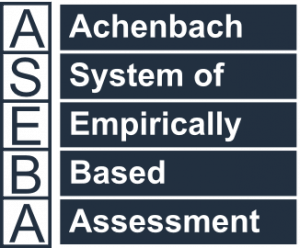Technical Support for ASEBA® Software Products
- How to Remove Clinicians from Drop-down List in Add Form Window in ASEBA-Web (Administrators Only)
- ASEBA-Network Installation Instructions
- How to Export Data from ASEBA-PC
- The informant has filled out and submitted the form; why won’t the scores show?
- Are the ASEBA instruments valid for children with Down Syndrome?
ASEBA Forms
153
- How to Change the Language on the Send Message to Informant Window.
- If preschool ASEBA forms for ages 1½-5 are completed for a child and school-age ASEBA forms are completed when the child is older, how can the scores from the earlier and later assessments be compared?
- Can forms be used outside their designated age ranges?
- The informant has filled out and submitted the form; why won’t the scores show?
- Into what languages have the forms been translated?
- Can the CBCL/6-18 and the CBCL/1½-5 be filled out by people other than parents?
- What if teachers say they don’t know enough about a child to score certain items?
- Some of my clients don’t read or speak English. Can I make translations of your forms for them?
- Do the TRF Inattention and Hyperactivity subscales have T scores?
- What gender should a transgender client use when completing an ASEBA form?
